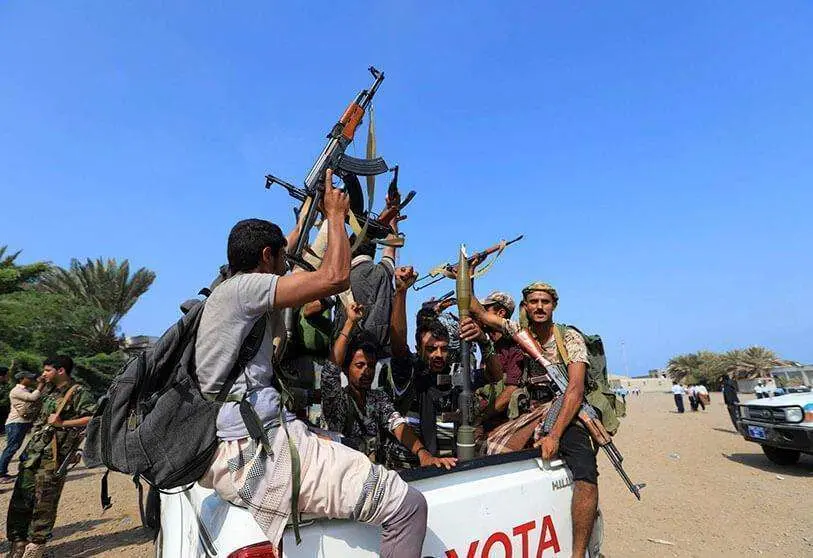An end to the war in Yemen?

Eight years of conflict have passed in Yemen. Eight long years since the Ansar Allah militia, the self-proclaimed "supporters of God", rose up against the government of Abd Rabbuh Mansur al-Hadi, dragging the country into a civil war that has become the biggest humanitarian crisis in the world, with almost half a million dead in its wake. A situation that this month has not only seen its anniversary, but also the first attempt at peace for the country after the Iranian-Saudi agreements. For the moment, it has been cut short by the escalation of the Houthi conflict.
The rebel militia has in recent days attacked Yemeni Defence Forces in the southern province of Shabwa and the oil-rich province of Marib, resulting in the deaths of 10 soldiers and several civilian casualties. But the most tense moment was experienced by Yemen's Defence Minister Mohsen al Daari, who survived an attack on his convoy in the south of the country after participating in a meeting with a delegation from Saudi Arabia, the Yemeni government's major ally.

The Houthis have not yet claimed responsibility for the attack, but Yemen's Information Minister Muammar al-Eryani has pointed directly to the insurgents as the perpetrators. In any case, the drone that triggered the assault, and which marks the rebel militia's own modus operandi, supports the accusations.
A new escalation of tension has set off alarm bells in Yemen's internationally recognised government. Minister al-Eyani himself has already warned of a possible return to all-out military conflict. A scenario that has not been repeated for a year, following the ceasefire agreed in April last year. The same Houthi demands that brought down the truce renewal in October now threaten to revive the conflict despite diplomatic efforts towards peace.
Divisions within the militia are evident. A large part of the Ansar Allah militants have distanced themselves from the agreements between Riyadh and Tehran and continue to set conditions for a possible peace pact. As the group's leader Muhammad Ali al-Houti has pointed out, negotiations include "the cessation of aggression, the lifting of the siege, an end to the occupation, economic compensation, and an end to the issue of prisoners". Al-Houthi downplayed the implications of the Iranian-Saudi rapprochement on the Yemeni issue, saying that the Chinese-backed deal is a matter for both sides, but that his group maintains an independent decision.
In Beijing, Iran pledged to stop shipping arms to the Houthis as part of the conditions for restoring diplomatic ties with Saudi Arabia, and may even "pressure the militant group to reach a deal to end the conflict", according to The Wall Street Journal. But escalating Houthi tensions have pushed any diplomatic efforts for Yemen off the horizon. Nor have they done so without response.

The country's presidential council has vowed to confront the Houthi "terrorists" and called for resistance from its troops. Its president, Rashad Al-Alimi, has argued that the latest attacks show that the militia had no desire to end the war and urged the international community to recognise the "seriousness of the escalation of tension and its disastrous consequences for world peace and security".
Diplomacy between Iran and Saudi Arabia, the region's two great enemies, opens a new chapter for the Middle East. Arab countries are looking not only to the resolution of a corroded confrontation, but also to a different future for countries such as Syria, Lebanon, Iraq and Yemen. But here the rebels do not seem to be on the same wavelength as their sponsor, the Islamic Republic. The window of hope that was opening up in the Gulf country, the one that promised to end an eight-year war of war, has now closed.








